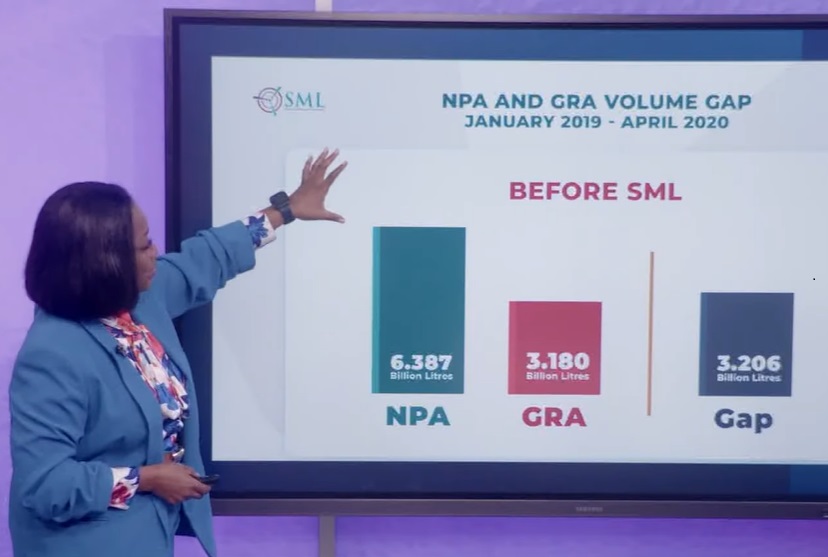What SML’s critics want is a return to manual accounting so they can exploit loopholes – Yaa Sarpong fires back – Nsemkeka
Dr. Yaa Serwaa Sarpong of Strategic Mobilisation Ghana Limited (SML) has accused some critics of opposing digital transformation in Ghana’s petroleum sector because it threatens entrenched interests.
Appearing on The Upfront on Joy News, Dr. Sarpong asserted that calls to terminate SML’s operations are effectively appeals to revert to outdated, manual accounting practices — which allowed for revenue leakages and data manipulation.
She said before SML was contracted to provide its revenue assurance services, the GRA was relying on handwritten waybills and Excel spreadsheets, which were easy to manipulate, and prosecutions of rogue OMCs or bulk distributors for suspected tax evasion and revenue fraud often failed due to poor documentation. “What our critics are asking for is to revert to those days so they can continue to exploit loopholes.”
According to her, SML’s system tracks petroleum movements from depots to delivery points in real time using automated tank gauges, flow meters, and GPS tracking.
She said what SML has put in is a tangible infrastructure — ultrasonic flow meters, automated tank gauging systems, secure satellite transmission, and solar-powered installations to ensure uninterrupted data flow even during power outages.
One key issue addressed was also the lack of independent metering, where in the past, OMCs used their own meters to record volumes, which created room for underreporting.
SML has introduced independent check meters and automated reconciliation systems which makes manipulation extremely difficult.
She said all records are automatically uploaded to a central dashboard monitored by GRA, meaning discrepancies in volumes, tax calculations, and delivery anomalies are detected instantly.
Dr. Sarpong also addressed the notion that SML is overpaid, stating that the company’s share is tied strictly to its performance and cost recovery, not arbitrary charges.
She explained that SML is being paid from savings generated by its own intervention.
Controversies arising from media publications on the government’s contract with SML, led to a KPMG audit which eventually acknowledged the efficacy of SML’s technical interventions and advised a contract revision.

